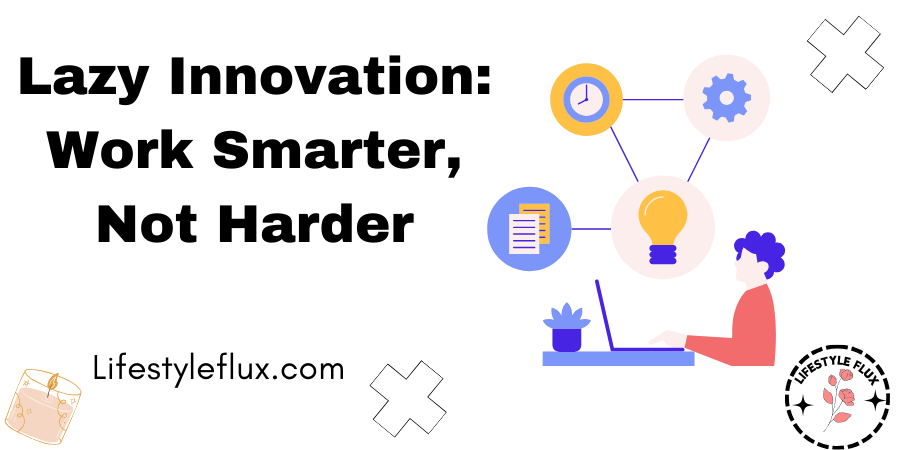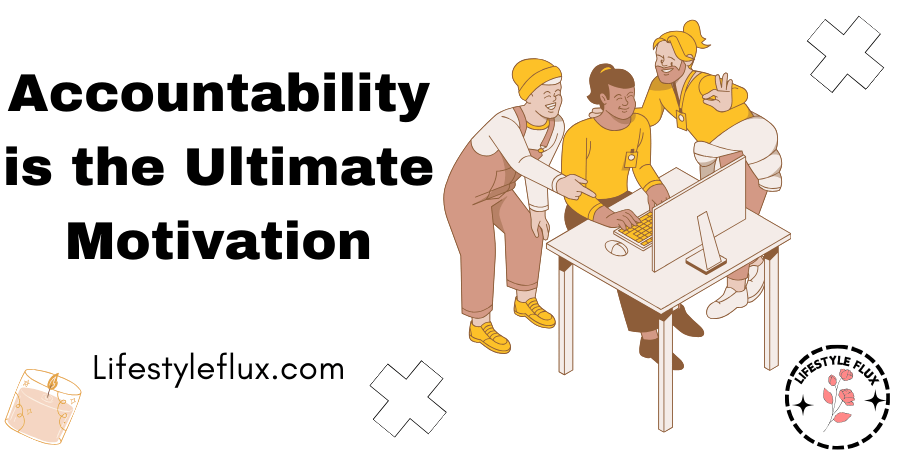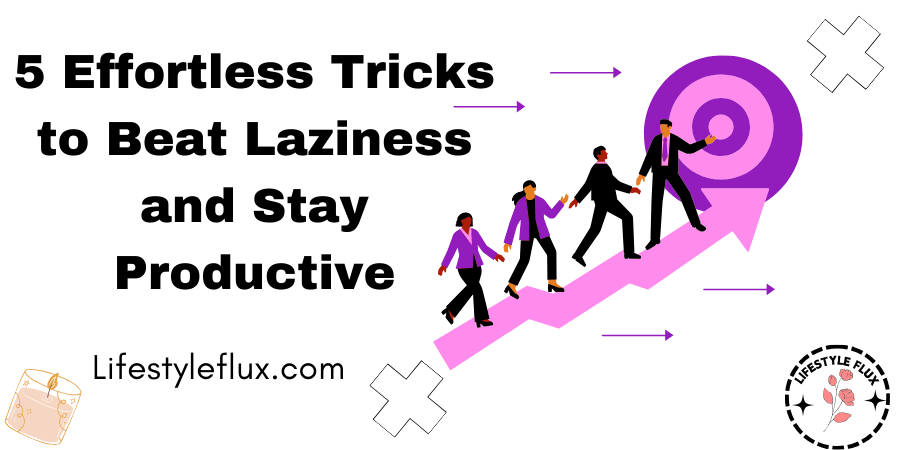Do you often find yourself procrastinating tasks, putting off responsibilities, or just feeling unmotivated? Laziness is something we all struggle with at some point, but the good news is that it’s not a permanent state.
Overcoming laziness isn’t about forcing yourself to work harder; it’s about working smarter and tapping into strategies that reignite your productivity.
In this article, we’ll explore five simple yet highly effective tricks to overcome laziness and start tackling your goals with renewed energy. Whether it’s embracing lazy innovation or simply dressing for productivity, these tips will help you turn your sluggish days into meaningful, action-packed ones.
Table of Contents
1. LAZY INNOVATION
Lazy innovation: there’s a common saying that necessity is the mother of innovation. Every new invention aims to satisfy some kind of need. People needed to see without wearing glasses, so someone invented contacts. People needed to communicate with friends and family from far away, so someone invented phones. I say the word need pretty loosely. More often than not, these inventions don’t really change our lives.
It’s not a life-or-death situation if we don’t have a TV or a recliner chair. People want these inventions because they make their lives easier now. The more you have, the less work you have to do.
For example, plenty of people live their whole lives without a microwave; there are lots of other ways to cook your food. But who wants to expend the effort if they don’t have to? Wouldn’t you rather just press a button and wait two minutes? Of course, my point is that laziness and innovation go hand in hand.

This is not just because customers are lazy inventors but also because they are often the laziest people out there. We’ll just look at Benjamin Franklin, who famously called himself the laziest man in the world. He said he would invent things simply to save himself a little bit of time and effort.
He was tired of working so hard when he went swimming, so he invented flippers. He only created bifocals because he was too lazy to switch between different pairs of glasses.
Lazy people make fantastic inventors since they’re always looking for the fastest and most efficient way to get things done. Their laziness motivates them to find creative solutions they’ll improve, streamline, and automate.
So they can spend less time doing things that they don’t like. You should use your laziness the same way when you’re unwilling to do something. Start looking for ways to save time. Not only is it more fun, but you’ll also find yourself more motivated to succeed.
Hmm, think of it like driving to work in the morning. Now, your normal route may only take you thirty minutes. But there’s nothing you hate more than sitting in traffic.
So you discover a shortcut, and you realize if you cut down a few side streets, you can completely skip the usual congestion. Even if you only end up saving, say, five minutes, your commute will feel significantly shorter and more exciting.
Finding a workaround also gives you a unique sense of accomplishment, and it feels good to know that you’re working smarter and not harder. So the next time you’re not in the mood to work, use that laziness to your advantage.
2. LISTEN TO YOUR THOUGHTS
Even when you’re avoiding your responsibilities, your mind is actively thinking about them, and you may discover you have a hard time enjoying whatever you’re distracting yourself with. Your mind is too focused on your laziness to prioritize anything else.
You end up feeling irritated and guilty because as much as you want to forget, well, you can’t. People are laziest when they’re in denial. Imagine you have a paper due next week in the back of your mind; you know it’s gonna be a ton of work.

You still have to gather sources, find quotes, and write your thesis; you know, the list goes on and on. Yet, here you are, spending hours on social media; you convince yourself you still have plenty of time, but your gut is telling you otherwise.
Whenever you continue thinking about one thing, it means it’s time to get started, not tomorrow, not in a few hours right now. This thought isn’t just popping up out of nowhere; it’s the productive part of your brain telling you the right thing to do.
So don’t try to block it out with TV or video games. You can use the same trick when you have a completely packed to-do list. If you’re struggling to figure out what to do, first tackle the task that you can’t stop thinking about. The longer you try to ignore it, the more frustrated you’re gonna feel. You’ll never feel satisfied until you get that big-ticket item out of your head.
3. THE POWER OF RELIABILITY
Even if you’re great about setting new goals, you may have a hard time following through. You might make a to-do list and lay out specific concrete steps, but what stops you from bailing at the last minute?
Let’s say you want to start working out; you research exercises. You buy gym clothes, and you even get a gym membership. Yet you never actually show up. You end up watching TV or playing video games because, well, you can.
If you decide to skip the gym for the tenth time, you’re not affecting anyone but yourself. There’s no one there to hold you accountable. You should use reliability to motivate yourself to do things that you normally wouldn’t.

So the next time you plan on going to the gym, ask one of your friends to meet you. They’re that way; someone else will be counting on you to show up, and they’ll expect you to follow through. So if you don’t, you won’t get off scot-free like you did before.
Reliability is effective for a number of reasons, but Trust is a big one. You show up because you don’t want to blow off. Your friend, you invited them to the gym, so you can’t just bail because you’re feeling lazy; sitting around watching Netflix is a pretty terrible reason to damage a friendship. Reliability also motivates you because you want your friends to think highly of you. You want them to see you as someone who takes their goals seriously.
So when you’re on your own, it’s easier to fail because no one has to know about it. Your friends and family won’t have a different opinion of you if you don’t go. But now your friend will see firsthand whether you’re following through or not.
So you show up to make sure you leave a good impression. For the same reason, you’re more likely to actually try while you’re there, and you can’t just leave after five minutes or sit on your phone the whole time. Sitting there watching your friend do what they’re supposed to do will motivate you to follow suit finally.
Reliability can make things more fun. It gives you someone to talk to, which relieves anxiety and stress. Friends might also be more experienced, so they can help you get the most out of whatever you’re doing.
If you’re struggling to find motivation on your own, hey, there’s no shame in calling for backup. The simple fact that someone else is involved will jumpstart your work ethic.
4. UNDERMINE YOUR FEARS
Sometimes, our laziness isn’t really laziness. You might procrastinate or avoid doing something because you’re worried about what will happen when you try.
You might have set your expectations way too high. You might feel an overwhelming amount of pressure to succeed. This can make even the smallest chores feel like huge responsibilities.
You end up running away because you can’t fail at something that you never actually do. Now, to avoid this kind of laziness, check your expectations at the door. In other words, when you start a project, you only have one job, and that’s to start. Don’t be afraid of making something terrible.
Just begin working on the first thing that pops into your mind. This gets you past that initial roadblock, and every project is way less intimidating when you’re already halfway done.
This is the same reason that teachers encourage their students to write rough drafts. You make something rough and imperfect to get an idea of where you’re headed.
Yeah, it won’t be very good because it’s not supposed to be. There aren’t any expectations or pressure. But you’ll find that things seem a lot more doable afterward.
So, when you’re feeling lazy, don’t be afraid to get a little messy. Improving something bad is a whole lot easier than making something perfect from scratch.
5. DRESS FOR PRODUCTIVITY
Where are you the laziest? Well, if you’re like most people, you probably feel lethargic whenever you try to work or study in your room. Your clothes may be the biggest reason why.
Now everyone knows it’s a whole lot more comfortable to work in sweatpants or pajamas. If you’re gonna spend all day doing something that you don’t want to, you might as well be comfy, right? The truth is your clothes can directly affect your habits.
This is one of the biggest reasons why so many companies make their employees dress up for work even if they aren’t interacting with customers. Your brain naturally associates your habits with your environment.

Think about studying in your room versus studying in the library. The latter is way more efficient because your brain doesn’t see your room as a workspace. So when you’re in your room, your brain unconsciously thinks about relaxation and sleep.
Because that’s what it’s used to doing, but the library puts you in a different mental space. This new environment forces your brain to work and think harder than it would anywhere else.
Clothes work the exact same way. What are you usually doing when you wear sweatpants? Chances are you aren’t taking tests or going to meetings, but you’re probably playing video games or watching TV.
So that’s what your brain thinks about when you’re wearing them: the lazier your clothes are, the lazier you’ll feel. To overcome this kind of laziness, change into clothes that help you focus.
Don’t worry, you don’t have to wear a suit and tie you should choose something you wouldn’t mind wearing out into the world. This is an especially helpful tip for students and people who work from home.
Yeah, it’s tempting to lounge around all day in your comfiest outfit, but you need to tell your brain when it’s time to shift gears. A change of clothing is an easy and effective way to do just that.
Conclusion.
Laziness isn’t your enemy—it’s an opportunity to innovate, prioritize, and improve your habits. By leveraging tricks like finding shortcuts, dressing for success, and turning your fears into motivation, you can transform your unproductive tendencies into powerful tools for growth.
Remember, everyone faces moments of inertia, but the key lies in how you respond to them.
Use these five tricks to reclaim your time and energy, and watch yourself achieve more than you thought possible. The journey to overcoming laziness starts with a single, intentional step—why not take it today?

Founder and CEO of Lifestyleflux.com, I bring years of expertise in self-improvement, wellness, and personal development to help you lead a happier, more balanced life. Through practical insights, eBooks, and consultations, I share actionable strategies rooted in experience and a passion for empowering others to unlock their full potential.

